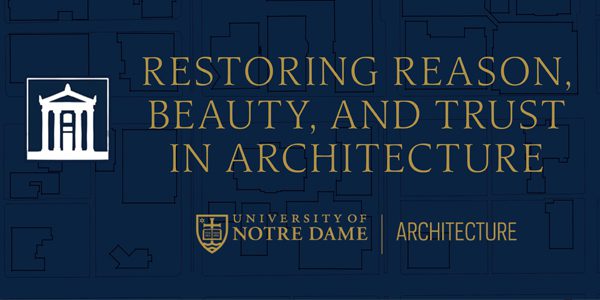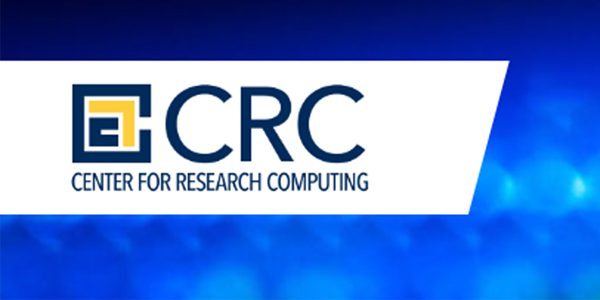Bridging the Divide 2020 – Beyond Good Manners: Promoting Civil Discussion on Issues that Divide Us
Subscribe to the ThinkND podcast on Apple, Spotify, or Google.
Featured Speakers:
- John Duffy, Professor of Englishat the University of Notre Dame
- Lisa Fazio, Assistant Professor of Psychology at Vanderbilt University
- Maura Policelli, associate professor of the practice and executive director of the Keough School’s Washington, D.C., office, University of Notre Dame
In the first session of Bridging the Divide, the three speakers shared a powerful discussion about misinformation. Maura Policelli, Executive Director of the Keough School of Global Affairs’ Washington, D.C., Office, moderated a discussion between John Duffy, O’Malley Director of Notre Dame’s Writing Program, Lisa Fazio, Assistant Professor of Psychology at Vanderbilt University, and Tim Weninger, and Frank M. Freimann Collegiate Professor of Engineering at Notre Dame. The speakers discussed ethical arguments around sharing information on social media, the responsibility social media users hold, and how our brains process misinformation. In today’s world, especially leading up to the presidential election, misinformation is a major issue, and the prevalence of social media only makes this misinformation easier to spread.
The speakers began their conversation by discussing the prevalence of social media and increasing misinformation. Each individual user on social media holds a responsibility to like and share authentic information. When these users engage with misinformation, not only are they altering the algorithm of their own feed, but also that of their social media friends. This has major implications, as research shows that repetition increases belief, so if someone is seeing repetitive misinformation headlines on their feeds, they are more likely to believe it.
Although this is a growing issue, there are ways to prevent the spread of misinformation. Fazio shared how one of the best ways for people to prepare themselves for inauthentic information is to understand certain themes that tend to involve misinformation, such as discussions around election fraud. Duffy explained that people need to critique misinformation. Although they may not be able to change the mind of the individual who posted or shared the inauthentic information, they may be able to change the minds of readers or bystanders seeing the misinformation on their feeds. Duffy also shared that people have to construct arguments about truthfulness and trust in order to build up communities and the kind of democracy we want, grounded in truth. Weninger advised people to slow down and be thoughtful with what they are sharing on social media because their social votes and shares truly matter.
Although misinformation is much more prevalent today, the speakers explained how it is not a new problem. Misinformation has existed as long as newspapers have existed, but today’s advanced technology, such as photoshop and film editing, in addition to social media, has amplified the issue of misinformation. It is important that we all have human opinions and biases, but that we share these opinions with authentic information to build up a more truthful and trustworthy community and democracy.
The session ended with a discussion on the election and opinions about voter fraud. Fazio shared how it is important to remember that we are a country based on democracy, and one of the major tenets of democracy is counting votes truthfully, and there is no evidence of any widespread voter fraud in the United States. Additionally, if Americans lose confidence in our elections, then we have lost our democracy, so it is important to not do so based on fraudulent information. While the information will remain to be published and promoted on social media, it is each individual’s responsibility to check the information they are reading and ensure the content they are engaging with and believing is authentic. Duffy successfully closed the discussion by reminding viewers that civil discourse does not mean agreement on everything, but rather indignation and finding a balance between refusing to respect conspiracy theories, fighting for an equal democracy, and continuing to fight for beliefs that are consistent with one’s ethical principles regarding truthful and authentic information.
- It is hard for people to detect misinformation when they don’t know what to look for.
- You have a responsibility as a social media user to make sure the content you are engaging with is authentic information.
- People are unaware of how important their likes and shares on social media are to their feed’s algorithm and that of their friends. This is how misinformation spreads.
- Leaving a comment to correct misinformation has the power to change the beliefs of bystanders and other viewers of the inauthentic content.
- Do not only critique misinformation, but also construct arguments that are grounded in truthfulness, trust, and open mindedness.
- “One of the best things people can do to prepare for these situations or to inoculate themselves against misinformation is to understand what are the themes that misinformation tends to be around.” — Lisa Fazio, 9:48
- “Why does misinformation spread? It’s because we are not conscious of the likes and shares that we make and how important they are to the algorithm and how much our friends are relying upon us to make good decisions for the news that they see.” — Tim Weninger, 12:15
- “We know from my research and others is that just repetition increases belief, so if you hear the same thing multiple times you are more likely to think that it’s true. And many of these headlines are made for increasing belief.” — Lisa Fazio, 21:10
- “To get our hands around this problem, people have to be able to do two things. One of the things they have to do is to critique the deceptions and the misinformation. That’s obviously critical. You have to be able to understand how that works and have the tools to resist it. But that’s not enough. You have to be able to construct arguments that are grounded in some of the things we’ve been talking about such as truthfulness and trust and open mindedness. It can’t simply be about critique, we have to also have a language for building the kinds of arguments and therefore the kinds of communities and the kind of democracy that we want to have.” — John Duffy, 35:16
- “We are the editors of our friend’s news feed. Like it or not, that’s the truth. And it turns out that we are not very good editors: 75 percent on Twitter, 75 percent on Reddit, and I think Facebook self reports 96 percent of all headlines are shared without the user clicking on the link.” — Tim Wenninger, 11:45
Related Content
How Cities Speak To Us
Professor Emily Talen joins the School of Architecture to share her work at The Urbanism Lab and its focal point at the University of Chicago for the study of the built...
View EventThe Black National Anthem & Parent’s Signing Off On Children Reading Black Books
In this week’s episode, Isaiah and Tykiera talk about some tweets about Black people that took Twitter by storm. They also talk about The Black National Anthem, Lift Every Voice...
watch videoTrusted AI Needs Trusted Data
In the buzz around AI, let’s not ignore the role of data for developing AI we can trust, says one Notre Dame computational scientist. Two years ago, Notre Dame launched the...
Read Article


